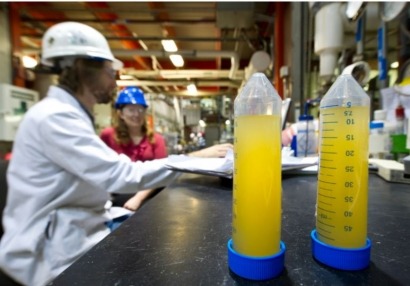
The organization released an analysis that finds the U.S. Environmental Protection Agency’s new methodology for setting annual renewable fuel standard (RFS) volumes is chilling investment in advanced biofuels.
According to BIO, investment patterns show EPA is sending sustained market signals that disincentivize advanced biofuels, resulting in a $22.4 million shortfall in necessary investment.
The organization says the rules force conventional and advanced biofuel producers to compete for limited shares of the transportation fuel market, which discourages investment in new technology.
The report also states that the EPA has shifted the responsibility and costs of building biofuel distribution infrastructure to biofuel developers, delaying investments in added advanced capacity.
“Moreover, EPA is using past production figures to project future market space for renewable fuels, a method proposed by the oil refining industry specifically to slow growth in renewable fuel production,” the report says.
“Many advanced biofuel developers also invest in conventional biofuels or intend to collocate production with or license technology to conventional biofuels producers, strategies that create economies of scale in feedstock and production infrastructure,” the report continues. “EPA’s new methodology forces these developers to choose between protecting sunk capital in conventional biofuel and risking new capital in advanced. Data on investment in the biofuel sector bears out that EPA’s methodology has forced producers to consolidate investment in conventional biofuel production capacity and distribution infrastructure, while sacrificing investment in advanced.”
The organization wants the EPA to reverse its "arbitrary" use of the general waiver authority to reduce overall volumes, raising advanced biofuel volumes sufficiently to obviate competition among biofuel developers.
“EPA recognizes that its delays in rulemaking from 2013 to 2015 undercut investment in advanced biofuels. The agency fails to recognize, however, that its methodology—including in the newly proposed 2017 rule—also undercuts investment in advanced biofuels,” said Brent Erickson, executive vice president of BIO’s Industrial and Environmental Section. “Data on investment in the biofuel sector bears out that EPA’s methodology has forced producers to consolidate investment in conventional biofuel production capacity and distribution infrastructure, while sacrificing investment in advanced.”
Erickson added: “Following yet another year of policy instability, BIO now estimates that EPA’s rulemaking delays, unwarranted expansion of its waiver authorities, and methodology for setting annual RVOs has caused a $22.4 billion shortfall in investment in advanced biofuels.”
“EPA is sending a sustained market signal that disincentivizes and discourages advanced biofuel producers, who have reached a stage where investment in proven technologies and processes could rapidly expand availability of cleaner, low-carbon transportation fuels,” Erickson said.
For additional information:

